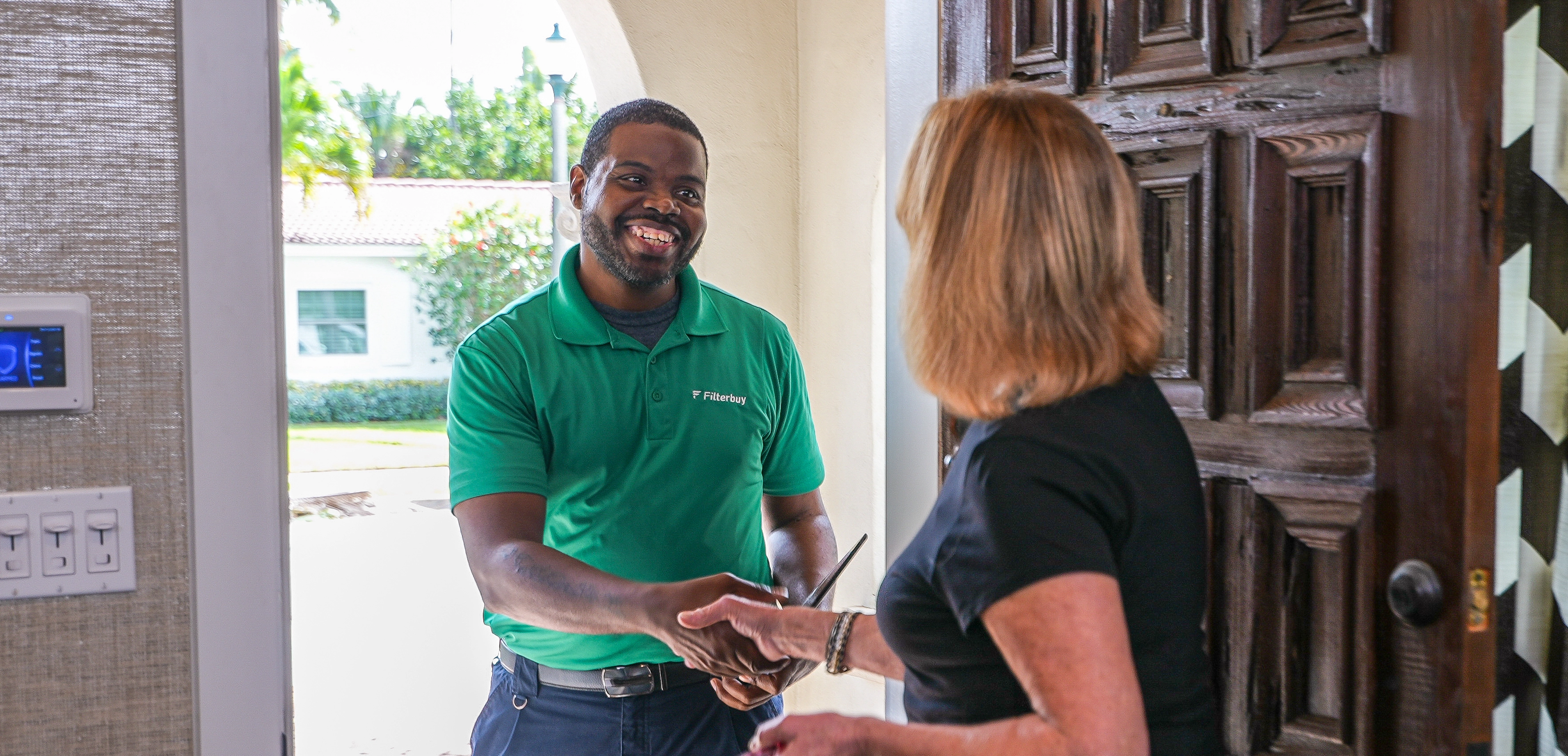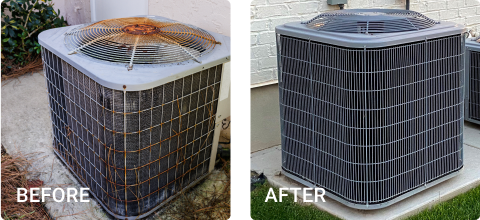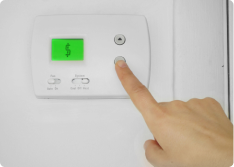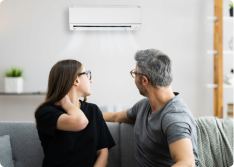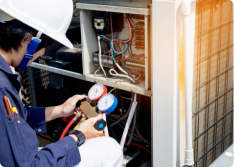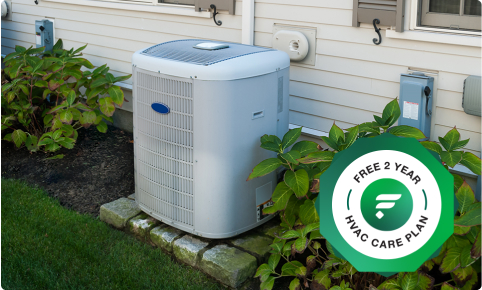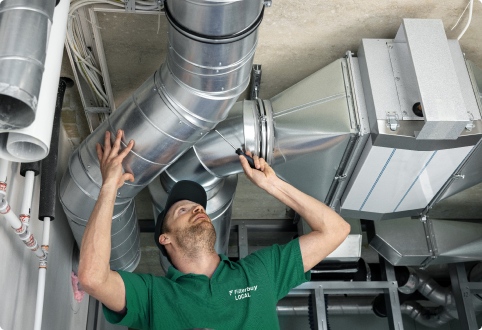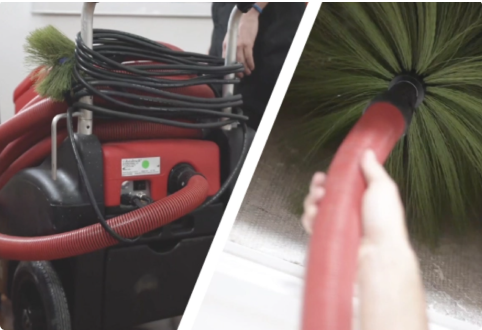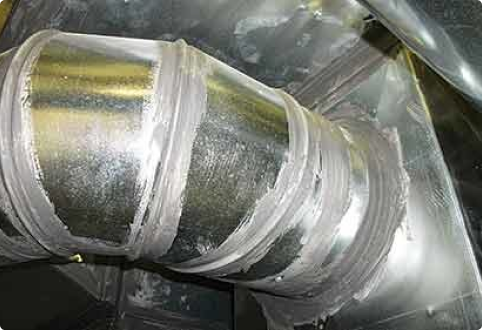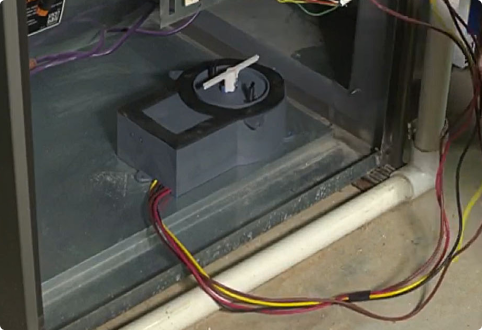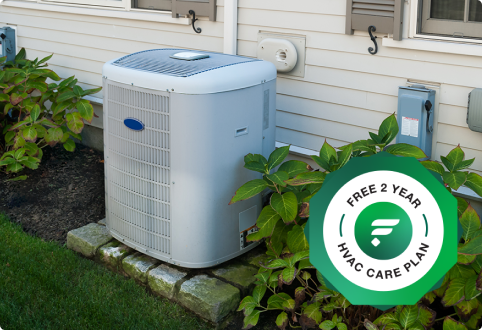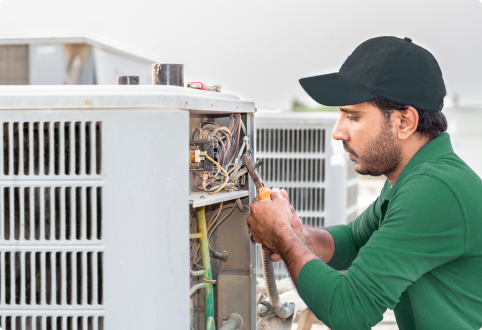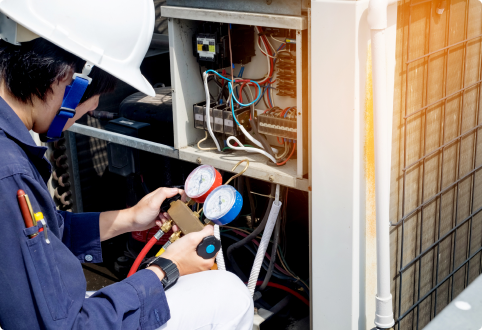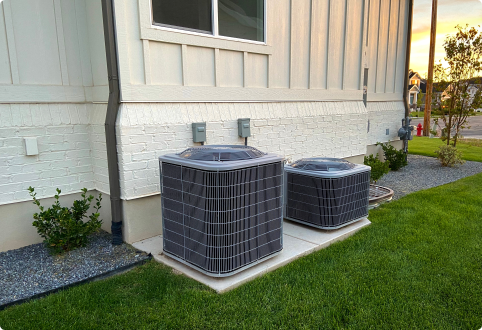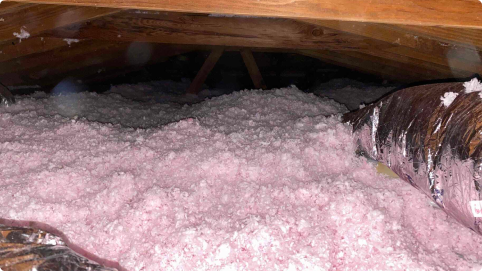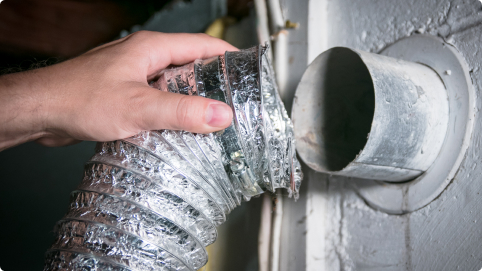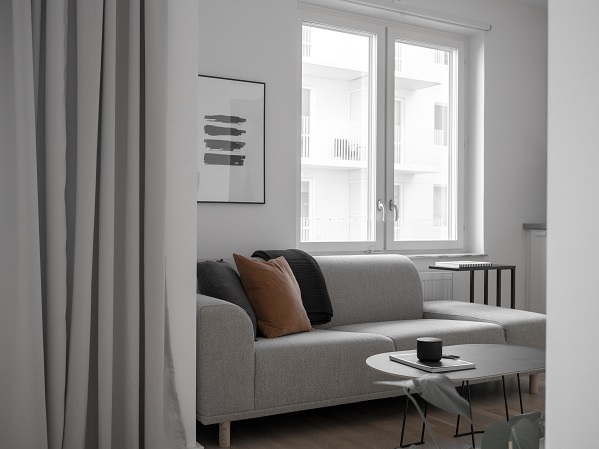Welcome to Filterbuy HVAC Solutions, the best HVAC system replacement service company proudly serving in and near the greater Palm City, FL area. Please let us know how we can help solve your Palm City HVAC system replacement needs with professional, affordable, and fast residential and commercial HVAC services by getting a free online quote or by giving our friendly HVAC specialists a call. We look forward to hearing from you!
HVAC Replacement in Palm City FL
As we navigate the scorching summers and mild winters of Palm City, FL, the efficiency and reliability of our HVAC systems become imperative. The decision to replace an existing HVAC system is not a trivial one and requires careful consideration. Factors such as system longevity, energy efficiency, and compliance with local building codes are significant in this decision-making process.
Furthermore, finding a reputable HVAC provider is equally important. Let's delve into this topic further, addressing the key factors to consider when planning an HVAC replacement in Palm City.
Key Takeaways
-Consider the local climate in Palm City, FL, when selecting a durable, high-quality HVAC system for replacement.
-Ensure the replacement process includes evaluation, sizing, installation, and post-installation inspection for efficient operation.
-Opt for a system with a high SEER rating and ENERGY STAR certification for energy efficiency; consider eco-friendly refrigerants.
-Choose a provider with local experience and familiarity with Palm City's building code compliance for a legally sound and efficient project.
-Prepare home for HVAC replacement, ensure professional installation for safety and efficiency, and understand warranty and after-sales support terms.
Recognizing HVAC System Failures
The ability to identify signs of HVAC system failures is a crucial skill for homeowners and property managers in Palm City, FL. A well-maintained HVAC system contributes to the overall longevity of a property and the comfort of its inhabitants. However, system longevity can be compromised by factors such as inadequate maintenance, frequent and extreme temperature changes, and overuse.
Seasonal breakdowns are a common issue to watch for, usually occurring during the peak of summer or the depths of winter when the system is under the most stress. These breakdowns can manifest as unusual noises, inconsistent temperatures, or sudden increases in energy bills. Regular inspections and preventative maintenance are essential to prolonging the life of an HVAC system and avoiding costly repairs or replacements.
Another sign of a failing HVAC system is a decline in air quality. If residents start experiencing frequent respiratory issues or the home consistently feels stuffy, it could indicate that the HVAC system is not correctly filtering the air. Recognizing these signs early can assist in averting severe system failures and possible replacement.
Understanding the Replacement Process
When it becomes necessary to replace your HVAC system, understanding the process can make the transition smoother and less stressful. The replacement process is generally comprised of three stages: evaluation, installation, and post-installation inspection.
1. Evaluation: The initial stage involves a complete assessment of the existing HVAC system by a professional. The replacement timeline is determined at this stage, depending on the complexity of the job and the availability of the required equipment. A key component of the evaluation is system sizing, where the professional determines the appropriate size of the new system to ensure optimal performance.
2. Installation: After evaluation, the old HVAC system is removed and the new one is installed. This process can take anywhere from a few hours to a few days, depending on the complexity of the system and the conditions of the site.
3. Post-installation inspection: Once the new system is installed, the professional carries out a thorough inspection to ensure that the system is functioning as expected.
Choosing the Right HVAC System
Having understood the replacement process, it is equally important to consider the factors involved in selecting the most suitable HVAC system for your specific needs in Palm City, FL. The choice of an HVAC system should not be solely based on cost, but also on system longevity and climate considerations.
System longevity is a significant aspect to contemplate. The lifespan of your HVAC unit should be long enough to justify the initial investment. High-quality systems tend to last longer, minimizing the need for frequent replacements and thus reducing long-term costs. Opt for a unit that is known for its durability and reliability, to maximize the system's lifespan.
Climate considerations are equally crucial when selecting an HVAC system. Palm City, FL, is known for its hot, humid summers, and mild winters. Therefore, a system that efficiently cools is more of a priority than a powerful heating system. You should choose a system that is built to perform optimally in these conditions, ensuring comfort throughout the year. To conclude, making an informed decision about your HVAC system in Palm City, FL, will depend on various factors, primarily system longevity and climate considerations.
Energy Efficiency Considerations
In evaluating your HVAC choices in Palm City, FL, energy efficiency emerges as a crucial factor to deliberate upon for both economic and environmental reasons. High-efficiency units can considerably reduce energy consumption, resulting in lower utility bills and a smaller carbon footprint. With a plethora of Green Initiatives and Sustainable Options available, making the right decision becomes easier.
1. SEER Rating: The Seasonal Energy Efficiency Ratio (SEER) is a measure of cooling efficiency for air conditioners and heat pumps. A higher SEER rating means greater energy efficiency.
2. ENERGY STAR Certification: HVAC systems that carry this certification meet strict energy efficiency guidelines set by the U.S. Environmental Protection Agency. Products with this label are proven to reduce greenhouse gas emissions and other pollutants.
3. Eco-Friendly Refrigerants: Many modern HVAC systems use refrigerants that don't deplete the ozone layer and have a lower potential for global warming.
Maintenance Requirements for New Systems
Beyond selecting a system with high energy efficiency, it's equally important to understand the maintenance requirements of your new HVAC system to ensure its longevity and optimal performance. Regular maintenance can significantly contribute to system longevity, reducing the likelihood of premature breakdowns and costly repairs.
It's recommended to have a licensed HVAC professional perform bi-annual checkups, preferably before the start of the summer and winter seasons. These checks can help ensure seasonal efficiency by identifying and addressing potential issues before they become major problems, particularly as the system works harder during these peak periods.
Maintenance tasks often include cleaning or replacing air filters, inspecting and cleaning coils, checking the system's refrigerant levels, and ensuring all components are in good working condition. A well-maintained system operates more efficiently, thus reducing energy consumption and resulting in lower utility bills.
Furthermore, smart thermostats can be linked to your HVAC system, providing real-time reports on system performance and alerting you to potential issues. This allows for proactive maintenance, further enhancing system longevity and efficiency.
Cost Estimates for HVAC Replacement
Understanding the potential costs involved in HVAC replacement is a critical aspect of planning for this substantial home improvement investment. The total cost can vary significantly based on the size and type of system you choose, the complexity of the installation, and whether any additional ductwork or electrical work is required.
Here are three key factors that can influence the cost of HVAC replacement in Palm City, FL:
1. System Size and Type: Larger and more complex systems typically cost more than smaller, simpler ones. Also, high-efficiency units may have a higher upfront cost but can save you money over time on energy bills.
2. Installation Complexity: Complex installations that require substantial ductwork changes, electrical upgrades, or other modifications can add to the cost.
3. Seasonal Discounts: Some HVAC companies offer seasonal discounts or special promotions, which can help reduce the total cost.
Moreover, numerous financing options are available for homeowners, ranging from manufacturer financing programs to home equity loans. These options can help spread the cost of HVAC replacement over time, making it more affordable. Finally, don't forget to factor in the potential energy savings from a new, more efficient system, which can also help offset the cost over time.
Finding Trusted Local Providers
Navigating the process of selecting a reputable local HVAC provider is an essential step in ensuring a successful replacement project. Provider credibility is a significant factor to consider in this endeavor. A credible HVAC contractor will have a proven track record of delivering high-quality services. Check for professional certifications, licenses, and affiliations with industry organizations. These are usually a testament to their commitment to maintaining high service standards.
The next aspect of your evaluation criteria should be local experience. HVAC systems in Palm City, FL, may have unique requirements due to the local climate and building codes. A provider with extensive local experience will be familiar with these specifications, thus ensuring your replacement project complies with all local requirements.
Online reviews and ratings can be a good source of information about a provider's reputation. Look for providers with positive feedback on their professionalism, quality of work, and customer service. A provider's response to negative reviews can also give you a sense of their commitment to customer satisfaction.
Preparing Your Home for Replacement
Once you have selected a reliable HVAC provider, proper home preparation is the next critical step in ensuring a smooth and efficient replacement process. Your HVAC system connects to your entire home, so it's important to prepare your space to minimize disruptions and maximize efficiency.
Consider these three steps to prepare your home:
1. Clear the Area: Remove any furniture or valuable items close to the HVAC system. This not only protects your belongings but also allows the technicians to work more efficiently.
2. Relocation Benefits: If your HVAC system is in an inconvenient location, discuss with your provider about the potential benefits of relocating it during the replacement process.
3. Seasonal Adjustments: Depending on the time of year, you may need to make temporary adjustments to your living conditions. In summer, prepare for a period without cooling, and in winter, ensure alternative heating methods are in place.
The Importance of Professional Installation
The necessity of professional installation cannot be overstated when it comes to HVAC replacement in Palm City, FL. It's crucial to hire qualified installation experts to ensure the proper installation of the system. The potential hazards of DIY installations make this professional expertise not just a luxury, but a requirement.
Ensuring Proper HVAC Installation
Proper installation of your HVAC system in Palm City, FL, is paramount to its efficient operation, longevity, and comfort of your home, underscoring the critical importance of professional installation.
1. Installation timeline: A professionally installed HVAC system ensures adherence to a strict timeline, avoiding unnecessary delays. This not only saves time but also prevents discomfort, especially during extreme weather conditions.
2. System sizing: A professional installer knows to accurately size the system according to your home's needs. This guarantees optimal operation and energy efficiency, reducing unnecessary costs in the long term.
3. Quality Workmanship: Expert installation ensures quality workmanship, which translates to a robust, durable system that won't require constant repairs.
In essence, professional installation is an investment that pays off through enhanced comfort and system longevity.
Hiring Qualified Installation Experts
In the realm of HVAC installation, entrusting the task to qualified experts is of significant importance for several compelling reasons. Notably, a certified technician can adhere to the predetermined installation timeline, ensuring the project's completion without needless delays or interruptions. This level of efficiency is often achieved through years of experience and extensive training, both part of the technician certification process.
Moreover, certified professionals are knowledgeable about local building codes and regulations, ensuring the HVAC system's compliance. They can also correctly size and install the unit, optimizing its efficiency and longevity. Therefore, hiring qualified experts isn't merely a choice; it's an investment toward ensuring a well-functioning HVAC system with an extended lifespan. Ultimately, professional installation guarantees peace of mind, quality service, and valuable expertise.
Dangers of DIY Installations
While the expertise of certified professionals ensures optimal HVAC system performance, attempting a do-it-yourself installation can lead to an array of detrimental consequences; highlighting the importance of professional service.
1. Safety Risks: DIY installations pose significant safety hazards. Errors can lead to electrical shocks, gas leaks, and even fires.
2. Tool Requirements: Specialized tools are necessary for HVAC installations. Without them, you increase the risk of damaging the system or your property.
3. Guarantee of Quality: Professionals are trained to ensure installations are done correctly, providing peace of mind.
Warranties and After-Sales Support
Understanding the details of your HVAC replacement warranty and the after-sales support provided by your Palm City, FL service provider is crucial to ensure long-term peace of mind. The Warranty Validity and Support Availability are essential factors to consider when replacing your HVAC system.
The Warranty Validity refers to the duration and terms under which your HVAC system is protected. This can range from a basic one-year warranty to extended warranties covering parts and labor for up to 10 years. It is vital to understand what is covered under the warranty, the claim process, and any limitations or exclusions. This avoids potential issues or misunderstandings in the future.
On the other hand, Support Availability refers to the after-sales services provided by the HVAC company. These can include scheduled maintenance visits, emergency repair services, and customer support channels such as hotlines and online platforms. Companies with reliable support ensure that any questions or concerns you may have about your HVAC system are promptly addressed.
Frequently Asked Questions
How Much Does It Cost to Replace an HVAC Unit in Florida?
The cost to replace an HVAC unit in Florida can vary greatly depending on the size of your home, the type of unit you choose, and labor costs. On average, you can expect to pay between $4,000 and $7,000 for a complete installation.
What Is the Life Expectancy of an HVAC Unit in Florida?
The life expectancy of an HVAC unit in Florida is typically between 10 to 15 years. However, this can vary based on the quality of the unit, how well it's maintained, and the environment it operates in.
Is Now a Good Time to Replace the HVAC?
The best time to replace an HVAC unit is usually before it breaks down completely, as emergency replacements can be costly. If your unit is near the end of its lifespan or it's becoming increasingly inefficient and costly to run, now might be a good time to consider a replacement.
What Is the Most Common HVAC System in Florida?
The most common HVAC system in Florida is the split system, which has components both inside and outside the home. This system is popular because it's efficient at cooling homes in the hot and humid Florida climate.
Should You Replace 20-Year-Old HVAC?
If your HVAC system is 20 years old, it's usually a good idea to consider replacement. Even if it's still running, it's likely not as efficient as newer models, which can result in higher energy bills.
Do You Need a Permit for HVAC Replacement in Florida?
Yes, in Florida you generally do need a permit for HVAC replacement. This ensures the work is done to code and can help protect you from potential issues down the line.
What HVAC Lasts the Longest?
The longest-lasting HVAC systems are generally those that are well-maintained. On average, you can expect a quality HVAC system to last 15-20 years, but with regular maintenance, some can last up to 25 years.
Can an HVAC Unit Last 30 Years?
While it's possible for an HVAC unit to last 30 years, it's not very common. Most units will start to decline in efficiency and performance long before this.
Can HVAC Last 40 Years?
An HVAC unit lasting 40 years is extremely rare. Most units will require replacement long before this due to declining efficiency and performance.
What Is the HVAC Rule of 5000?
The HVAC rule of 5000 is a guideline some homeowners use when deciding whether to repair or replace an HVAC unit. If the cost of a repair multiplied by the age of the unit is more than $5000, it's generally recommended to replace the unit.
What Time of Year Is the Cheapest to Buy HVAC?
The cheapest time of year to buy an HVAC is generally in the off-seasons, like fall and spring. During these times, demand is lower so you might be able to find better deals.
What Is the Best Seer for Florida?
The best SEER (Seasonal Energy Efficiency Ratio) rating for an air conditioning system in Florida is ideally between 14-16. This is due to Florida's warm climate and high humidity levels, which require more efficient cooling systems. However, the higher the SEER rating, the more energy-efficient the unit is, so depending on your specific needs and budget, you may choose a system with a higher SEER rating for even more energy savings.
Here is the nearest branch location serving the Palm City area…
Filterbuy HVAC Solutions - West Palm Beach FL
1655 Palm Beach Lakes Blvd ste 1005, West Palm Beach, FL 33401
(561) 448-3760
https://maps.app.goo.gl/UfVpkahY6Ry2sb9E7

.webp)
.webp)
.webp)
.webp)






